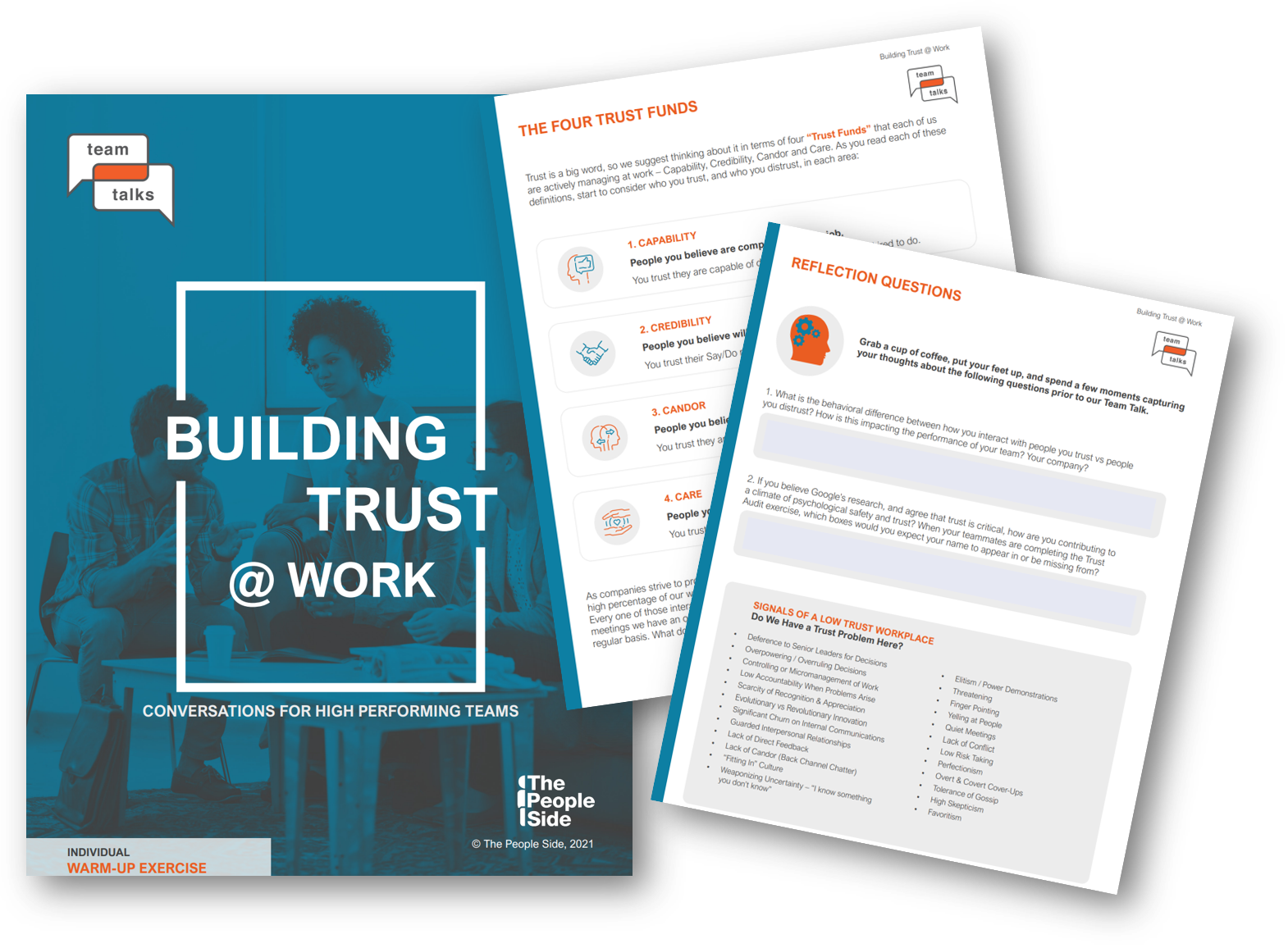Why Trust is the Most Important Currency You Have at Work
Yesterday I was talking to a friend who is stepping into her first Team Leader role. She has been an individual superstar for years, always delivering results and contributing to a team, but now she was going to have to get results through others. This is a role she was asked to take on by her boss, and she was questioning if she should have accepted it or not.
She was asking herself a lot of questions: Would she like leading people? Would she be good at it? Did she have the skills to do it? She was coming to me for advice, since I develop leaders for a living, so I told her what I believe is the single most important quality of a great leader. People need to believe they can trust you.
Trust is a fundamental element in any relationship, including the relationship between leaders and their followers. Without trust, it can be difficult for a leader to motivate and inspire their team, and to effectively lead them towards achieving their goals.
Trust allows leaders to create an environment where team members feel safe to express their opinions and ideas, take risks, and make mistakes without fear of negative consequences. When trust is present, team members are more likely to be committed to their work and to the overall goals of the organization. They are also more likely to be loyal to their leader and to go the extra mile when needed.
Furthermore, trust is a two-way street. Leaders must trust their team members in order to effectively delegate tasks and responsibilities and to empower them to take ownership of their work. When team members feel trusted, they are more likely to perform at their best and to take on additional responsibilities. My friend would be leading a team who are located across the world, and she would need to trust them to operate independently in that construct.
I told her to think about Trust as the most valuable currency being exchanged within a high performing team. Each team member is either depositing or withdrawing trust in every interpersonal interaction they have. To understand her personal trust tendencies, I asked her to reflect upon the following:
Some individuals have a high propensity to trust and begin relationships with an assumption of trustworthiness. Other individuals require multiple “moments of proof” before they will deem someone trustworthy. Which type of individual are you?
If someone asked if you were trustworthy, what would you say? Nearly all of us would say “YES!” because we know our intent is to do the right thing. But if someone asks, “Do you trust everyone on your team?,” what would you say?
In our new “Leading People” program we look at the four “Trust Funds” leaders need to manage at work – Competence, Credibility, Candor, and Care – to build upon this concept. We invite leaders to assess the level of trust they currently have in each account and audit where trust is lowest and highest on their team. This exercise often reveals surprising truths that help a leader reflect on how they are managing their relationships and the performance of the individuals they lead. For example, imagine that you don’t trust the competence of a team member. How might you lead them? Or if you think someone is unreliable, or withholds information from you, or is willing to throw you under the bus? Whether it is overtly named, or quietly bubbling just below the surface, trust issues manifest themselves in how we lead and interact with our team.
Patrick Lencioni puts “Lack of Trust” as the foundation of his model in the book The Five Dysfunctions of a Team for a reason. When it is broken, you can expect other dysfunction to follow. So while there may be other important factors in effective leadership, trust is widely considered to be a crucial foundation for success.
The good news for my friend is that she is someone who naturally invests in relationships and has a higher propensity for trust. She has been able to navigate her organization without positional power because she has so much personal power. I encouraged her to lean into this superpower to establish a great foundation of trust with her new team.
I also told her to register for an upcoming session of Leading People if she wanted to learn more about “Building Trust at Work” and the other critical capabilities we teach new leaders. If you are looking for a more scalable way to develop your new leaders, we welcome you to join us too!
Join us for free preview of “Building Trust @ Work” on:
Friday, March 3rd from 11:00am – 12:00pm CST
- or -
Thursday March 9th from 11:00am – 12:00pm CST
CLICK HERE TO JOIN:
https://us02web.zoom.us/j/9606339113
"Hi - I'm Candyce Penteado, the Founder & Managing Partner of The People Side. It is the mission of our organization to alleviate human suffering in the workplace. Working in partnership with a team of extraordinary talent, we are delivering on this mission and practicing deeply human development. We hope you enjoy learning alongside of us! "



